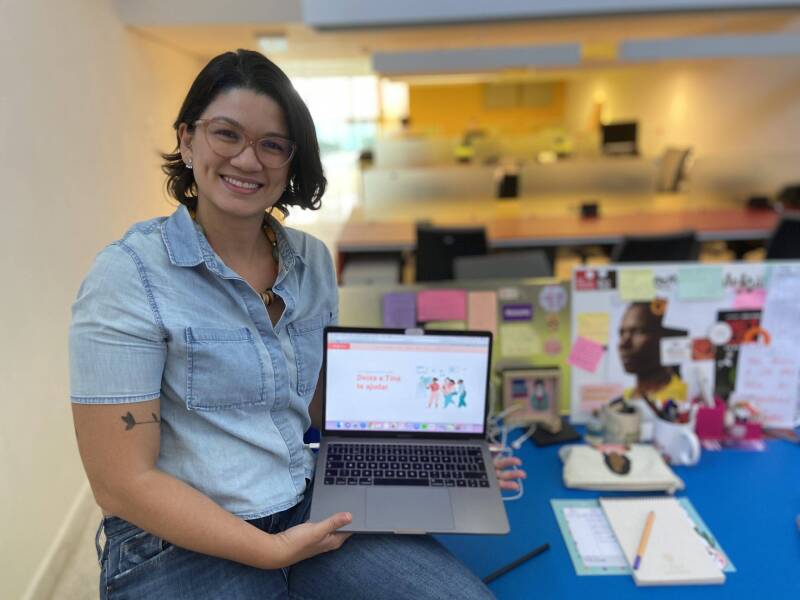In Brazil, the saying goes: “Em briga de marido e mulher, ninguém mete a colher”, which roughly translates to “In arguments between a husband and wife, do not meddle”, and it captures Brazil’s domestic violence problem. This entrenched attitude in Brazilian society has disastrous consequences with an average of 13 women killed every day in the country, according to Mapa da Violencia.
Today is the International Day for the Elimination of Violence Against Women. This is a timely moment to report on the groundbreaking work of Mete a Colher, the Brazilian start-up that literally “meddles” in domestic affairs and supports women who are victims of domestic violence.

The idea for Mete a Colher was born in March 2016 at an entrepreneurship workshop. CEO Renata Albertim recounts: “One of the women on my team told me about a case she had experienced and so we had the idea of creating a solution to the social problem of domestic violence. It all started with the creation of a Facebook page, where Mete a Colher offered to listen to reports of victims of abuse. The messages from the followers showed us the importance of discussing the subject and the need to support those who need help.”
Changing the conversation in Brazil

Additionally to Mete a Colher, Renata and her team created Tina, a web service channel where Brazilian women who work in corporations can report acts of violence against them. The service focusses on supporting, guiding, and monitoring female employees who experience any kind of violence: domestic, sexual, and/or moral in the workplace. The start-up has been making waves in the past months: Its Tina App has helped hundreds of female employees during this year and Mete a Colher was selected from over 400 applicants to take part in F-LANE, the Vodafone Institute’s global accelerator programme for female-led tech start-ups. This year, the programme took place virtually for the first time, between September and November 2020.
Through its work, the Tina app is changing the conversation around domestic violence in Brazil. According to Renata, Brazilians are often more concerned with asking why women are in an abusive relationship than understanding why men are carrying out the abuse. By challenging the taboo nature of the issue, Mete a Colher gives thousands of women the confidence to step forward and report instances of domestic abuse.
When asked about this shift in conversation and cultural changes in Brazil, Renata explains:
“I feel that every day people are more willing to hear about violence, seek more knowledge to understand the difficulties of women breaking the abusive relationship and also make themselves more available to help other women who experience a violent relationship. More projects and NGOs are appearing in Brazil to combat violence against women and many companies are also embracing this agenda and taking more effective actions to combat violence against women, as well as to assist female employees who suffer from violence. I believe that this movement to combat and eliminate violence against women has a lot of potential to grow.”
What can public services do?
Could the government and public services do more to help women who are victims of domestic violence? Brazil’s Maria da Penha Law, which protects victims of domestic violence, is considered the third-best law in the world to address the issue. However, Renata explains that despite well-intended and designed laws and public policies, there is a lack of financial investment for the maintenance and improvement of existing structures. This is especially true in rural areas, as funding is often more concentrated in capitals or in cities. Renata explains: “Mete a Colher’s job is to bridge the gap between women who are victims of violence and public policy. That is why we seek every day to strengthen public structures to combat violence against women.”
During the pandemic and enforced lockdowns, it became very clear that the policy needs to improve and bring more innovative solutions for women to get support online. The issue of domestic violence has become more pressing than ever, and this is not only true for Brazil but for the rest of the world too. According to UN Women, one in three women worldwide experience physical or sexual violence, mostly by an intimate partner, and this number has risen significantly since the outbreak of COVID-19, with the UN projecting a 20% increase in cases. The story of Mete a Colher is an inspiring example of women tackling the global issue of domestic violence head-on, in a country where the odds were stacked against them.
